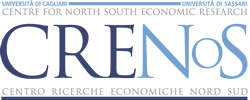The Impact of the Pandemic and War on Surplus Redistribution Mechanisms: A Sectoral Analysis of France and Italy
| Title | The Impact of the Pandemic and War on Surplus Redistribution Mechanisms: A Sectoral Analysis of France and Italy |
| Publication Type | Working Paper |
| Year of Publication | 2023 |
| Authors | Garau, G, Meligi, AKEl |
| Number | 23_10 |
| ISBN Number | 978 88 68514 723 |
| Keywords | input-output, relative prices, Total Factor Productivity Surplus |
| Abstract | The past three years have witnessed two rare events, the pandemic and the Ukrainian war, which have had significant impacts on the redistribution of surplus. Although both events were exceptional, they affected the surplus redistribution mechanisms differently. The pandemic has raised concerns about globalization processes, leading to a redefinition of global value chains. Conversely, the war has had devastating effects on populations, non-compliance with international laws, and cost inflation, similar to the oil crises of the 1970s. Interestingly, while production systems have scaled back in response to the pandemic, online sales, and the procurement of vaccines and medicines have grown exponentially on a global scale. In contrast, the war has caused certain goods, such as energy, agriculture, and electronics, to become scarce, causing problems in value chains and our daily lives. This paper aims to investigate the period between 2010 and 2019, corresponding to the interval between the 2008 crisis and the 2019 breakdown, to better understand the relationships between productive sectors and economic agents in France and Italy. Using the Input-Output Tables (IOT) at current and constant prices produced by the respective national statistical systems, we will analyze how the pandemic and the war could affect distributional rules, using Fontela's (1989) and Garau's (1996) methods. Fontela's model establishes the distributional rule of productivity gain in the input-output context, while Garau's proposed model identifies a measure of surplus, called purchasing power transfer (PPT), which accounts for the extra-profit conditions resulting from rental positions held by agents (Market Surplus). By analyzing the Total Factor Productivity Surplus (TFPS) and Market Surplus measures, policymakers can understand the degree of non-competitiveness in different markets and the impact of the pandemic and the war on sectoral redistribution mechanisms. Limiting market surplus situations and eliminating barriers that protect specific sectors can prevent hindrances to the full revival of the economy. Although the pandemic and the war have global effects, this paper emphasizes the importance of studying redistribution mechanisms at the sectoral level. Understanding sectoral relations can help create a more equitable redistribution of the benefits of economic growth and identify the mechanisms and rules necessary to counteract the observed global issues. |
| Citation Key | 7392 |
| Attachment | Size |
|---|---|
| 1.45 MB |
